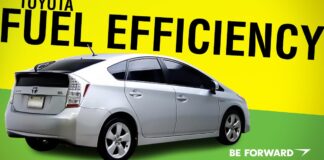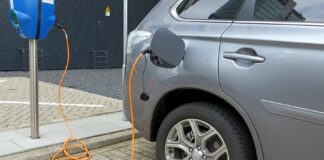Hybrid vehicles excel for both short trips and extended journeys. Many hybrids generate their own electric power, eliminating the need to stop at charging stations to recharge the battery.
Certain hybrid models do require a visit to an electric vehicle charging point. Fortunately, numerous charging stations are now available throughout the United States and Canada, making travel to urban centers, small towns, or national parks hassle-free.
Are hybrid cars suitable for long trips?
Some assume that hybrid vehicle owners are limited to city driving or areas near major highways, believing hybrids lack the range for long trips and need frequent recharging.
If this were true, hybrid owners would be restricted from taking their cars on extended road trips. Thankfully, these misconceptions mainly apply to older hybrid models.
Most modern hybrids can travel up to 350 miles using a single tank of fuel combined with a fully charged battery.
When hybrids were first introduced, intercity travel was challenging due to the scarcity of electric charging stations.
However, many hybrid manufacturers have integrated electric charging stations or added charging ports at existing fuel stations.
For those with hybrids that recharge via regenerative braking, running out of battery power is rarely a concern.
While driving on highways or local roads, the hybrid’s regenerative braking system converts mechanical energy into battery power.
Hybrid car mileage
As mentioned, the ability to drive long distances depends heavily on the hybrid’s make and model. On average, a hybrid can cover up to 350 miles with a full battery and a full tank of gas.
The battery and gasoline engine collaborate to transport passengers more efficiently than a standard gas-powered vehicle.
Hybrid car owners often learn that their vehicles perform optimally at speeds below 50 miles per hour. Many assume hybrids are best suited for city streets and local driving.
However, this doesn’t mean hybrids can’t handle long journeys to business destinations, vacation spots, or new homes.
The 50 mph guideline applies only to specific models. Hybrids can still reach speeds of 60 or 80 mph, switching between battery and gas power, just as they do in urban settings.
Thanks to the synergy of the battery and gas engine, most hybrids achieve 10% to 15% better mileage than traditional gas-powered cars.
Thus, hybrids not only handle long-distance trips but can often travel farther than conventional gas vehicles.
What challenges might hinder long-distance hybrid travel?
Two primary obstacles could complicate long-distance travel in a hybrid vehicle, but thorough planning and research can mitigate these issues.
Lack of hybrid vehicle mechanics
Vacations don’t exempt vehicles from mechanical issues. If a hybrid encounters problems far from a trusted mechanic, what options does the owner have?
Hybrid owners have two main solutions for finding a mechanic while traveling.
First, they can search online for certified hybrid repair shops and mechanics. Before embarking on a trip, identify reputable hybrid mechanics along your route and at your destination.
Check reviews for each mechanic to select the best one. Online hybrid car forums are also great for asking questions and finding reliable mechanics.
The second option is to use the hybrid car’s brand service program, such as those offered by Toyota, GM, Ford, Kia, or Mitsubishi. Many hybrids include limited-time service plans from the manufacturer, which can be extended for a monthly fee.
For instance, a Toyota hybrid owner can rely on a Toyota service center for repairs or breakdowns.
Before a long trip, have your hybrid inspected by a trusted mechanic for routine maintenance.
Limited charging station availability
If your hybrid recharges via regenerative braking, charging stations aren’t an issue. However, some hybrids require plugging into a charging station to recharge.
This challenge can be minimized by booking hotels with charging stations in their parking areas. Many upscale hotels provide charging facilities for guests with plug-in hybrids.
Online resources, including maps of charging station locations, allow hybrid owners to plan routes through areas with charging stations.
Conclusion
Hybrids aren’t just for city commutes or low-speed driving. They can carry passengers up to 350 miles on a single tank of gas and a charged battery.
The main challenges for hybrid owners on long trips include finding reliable mechanics and accessing charging stations. However, pre-trip research and leveraging brand-specific service centers can resolve these issues effectively.








